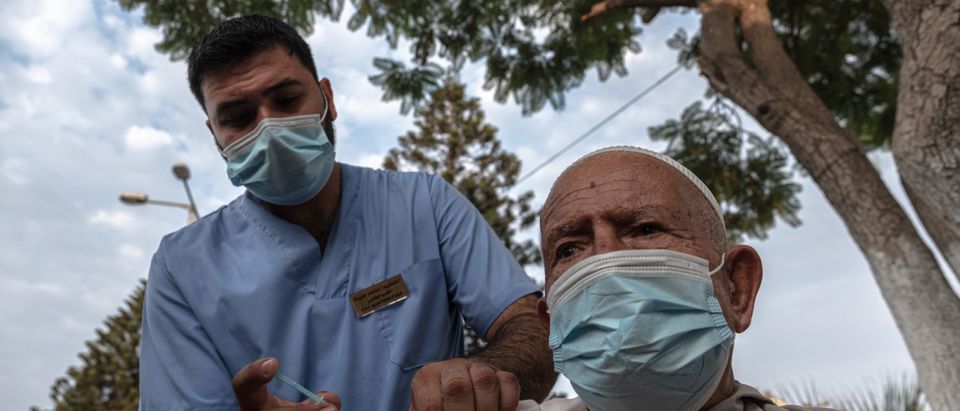A new study of the power of COVID-19 natural immunity versus the protection provided by vaccines is igniting further debate among scientists on how to assess risk from the virus.
The observational study of more than 700,000 Israelis, which hasn’t yet been peer-reviewed, compared three groups: those who hadn’t been infected and received two doses of Pfizer’s COVID-19 vaccine, those who had been infected and were completely unvaccinated and individuals who were previously infected and received one dose of the vaccine. The researchers found that uninfected vaccine recipients were 13 times more likely to experience a breakthrough infection than those who were previously infected.
“It’s a textbook example of how natural immunity is really better than vaccination,” Charlotte Thålin, a physician and immunology researcher at Danderyd Hospital and the Karolinska Institute in Stockholm, Sweden, told Science Magazine. “To my knowledge, it’s the first time [this] has really been shown in the context of COVID-19.”
I didn’t expect such a strongly worded piece in Science (AAAS).
“It’s a textbook example of how natural immunity is really better than vaccination,” says Charlotte Thålin, a physician and immunology researcher. 😬https://t.co/hXwkRjGWiT— Prof Francois Balloux (@BallouxFrancois) August 27, 2021
Prior research has indicated that natural immunity to COVID-19 is strong, but no research has definitely shown that it is more protective than getting vaccinated up to this point.
The increased protection found in the study extended beyond reinfection, as natural immunity was also found to lead to fewer symptomatic cases and hospitalizations as well. The researchers also concluded that individuals who received one dose of the Pfizer vaccine in addition to recovering from previous infection had the highest level of protection of the three groups.
Data was pulled from Israel between June 1 and August 14, when the Delta variant was dominant in the country. The variant is currently driving a spike in cases and deaths in the United States. It is believed to be the largest real-world study conducted during the pandemic comparing natural immunity to vaccine protection. (RELATED: Poll: Anxiety Over COVID-19 At Highest Point Since Winter)
“The differences are huge,” added Thålin, although she warned the research couldn’t be considered conclusive. The sample size of hospitalizations in the 32,000-person analysis of the vaccinated group was only eight, and only one among the previously infected. Nobody in the entire study died, signaling that both vaccination and natural immunity provide a substantial amount of protection from death.
Researchers warned that the takeaway from the study should not be that catching COVID-19 is a superior substitute to getting vaccinated, due to the higher level of risk that comes with battling the virus versus getting the shot. “What we don’t want people to say is: ‘All right, I should go out and get infected, I should have an infection party,” Rockefeller University’s Michael Nussenzweig, an immunologist, told Science.
Still, the results are promising for how the world can reach an end to the pandemic. The research could help inform future vaccine mandates by either the government or private entities, which thus far have not differentiated between individuals who have previously been infected with the virus and those who haven’t. It could also influence how vaccine doses are distributed among populations where supply is scarce. (RELATED: Poll: Half Of US Workers Think Workplace Vaccine Mandates Are A Good Idea)
“We continue to underestimate the importance of natural infection immunity … especially when [infection] is recent,” said Scripps Research physician-scientist Eric Topol to Science. “And when you bolster that with one dose of vaccine, you take it to levels you can’t possibly match with any vaccine in the world right now.”


